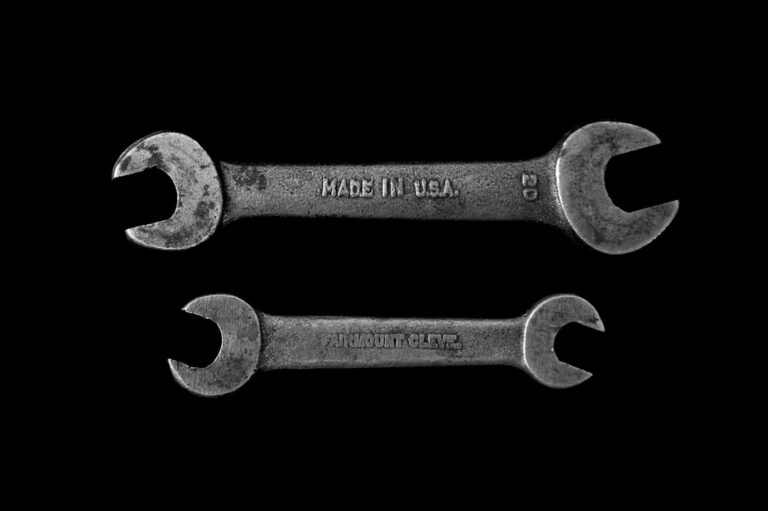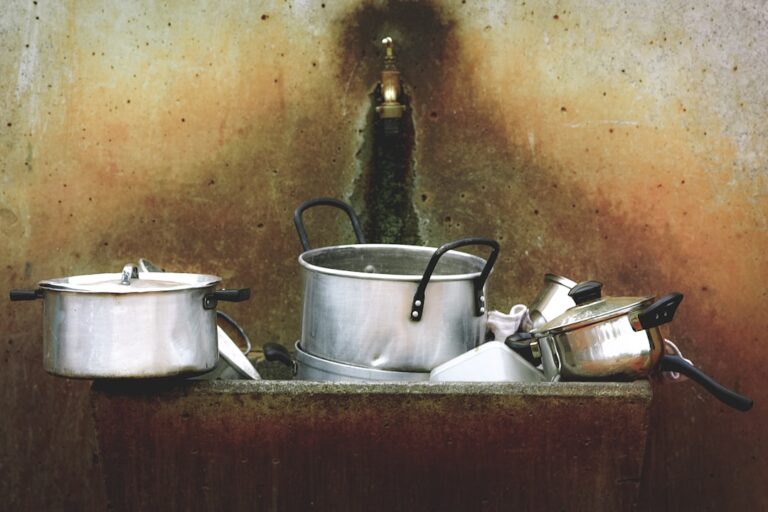The Ultimate Guide to Cleaning Your Glasses

Proper cleaning of eyeglasses is crucial for maintaining their longevity and ensuring clear vision. Over time, dirt, oil, and debris accumulate on lenses, affecting visual clarity and potentially causing scratches. Regular cleaning helps maintain lens quality and ensures comfort during wear, as dirty glasses can cause irritation when in contact with skin.
Additionally, cleaning prevents the buildup of bacteria and germs, which can pose risks to eye health. Maintaining clean glasses also enhances their appearance. Smudge-free lenses not only improve vision but also contribute to the overall aesthetic of the eyewear.
This can boost confidence for wearers, whether glasses are worn for fashion or necessity. Furthermore, proper cleaning and maintenance can extend the lifespan of glasses, reducing the need for frequent replacements or repairs and ultimately saving money. Regular cleaning should be incorporated into a daily routine to keep glasses in optimal condition.
This practice ensures clear vision, comfort, hygiene, and longevity of the eyewear. By dedicating time to proper cleaning and care, wearers can maximize the benefits and lifespan of their glasses.
Key Takeaways
- Proper cleaning is essential for maintaining the clarity and longevity of your glasses.
- Materials you will need for cleaning your glasses include a microfiber cloth, lens cleaner, and mild soap.
- Follow a step-by-step guide to cleaning your glasses, including rinsing, applying cleaner, and drying with a microfiber cloth.
- Different types of lenses require different cleaning techniques, such as using a special solution for anti-reflective coatings.
- Properly store your glasses in a case when not in use to protect them from scratches and damage.
- Common mistakes to avoid when cleaning your glasses include using harsh chemicals and wiping lenses with a rough cloth.
- Additional maintenance and care tips for your glasses include getting regular adjustments and avoiding leaving them in extreme temperatures.
Materials You Will Need for Cleaning Your Glasses
Essential Cleaning Tools
A high-quality microfiber cloth is an essential tool for cleaning your glasses. These cloths are designed to effectively remove dirt, oil, and smudges from the lenses without scratching or damaging them. A gentle, alcohol-free lens cleaning solution is also recommended for cleaning your glasses. Avoid using harsh chemicals or household cleaners, as they can damage the coatings on the lenses.
Convenient Cleaning Options
Pre-moistened lens cleaning wipes are convenient for on-the-go cleaning and can be used as an alternative to a lens cleaning solution and microfiber cloth. Additionally, warm water is useful for rinsing off any stubborn dirt or debris from your glasses before using a cleaning solution.
Caring for Frames and Nose Pads
A soft-bristled brush can be used to gently remove any debris or dirt from the frames and nose pads of your glasses. This gentle cleaning tool is essential for maintaining the overall appearance of your glasses.
Proper Cleaning for Quality and Appearance
By having these materials on hand, you will be equipped to properly clean your glasses and maintain their quality and appearance. Regular cleaning with the right materials will ensure that your glasses continue to look their best and function properly.
Step-by-Step Guide to Cleaning Your Glasses

Cleaning your glasses may seem like a simple task, but it is important to follow the correct steps to ensure a thorough and effective clean. Here is a step-by-step guide to cleaning your glasses: 1. Start by rinsing your glasses under lukewarm water to remove any loose dirt or debris from the lenses and frames.
2. Apply a small amount of lens cleaning solution to both sides of the lenses. 3.
Gently rub the lenses with a microfiber cloth in a circular motion, ensuring that you cover the entire surface of the lenses. 4. Use a soft-bristled brush to gently clean the frames and nose pads, removing any dirt or debris that may have accumulated.
5. Rinse the glasses again under lukewarm water to remove any remaining cleaning solution. 6.
Gently shake off any excess water and use a clean microfiber cloth to dry the lenses and frames, being careful not to apply too much pressure. Following these steps will help to ensure that your glasses are thoroughly cleaned without causing any damage to the lenses or frames.
Tips for Cleaning Different Types of Lenses
| Lens Type | Tips for Cleaning |
|---|---|
| Glasses | Use a microfiber cloth to gently wipe the lenses. Avoid using paper towels or clothing as they can scratch the lenses. |
| Camera Lenses | Use a blower to remove any dust particles, then use a lens cleaning solution and a microfiber cloth to gently clean the lens surface. |
| Sunglasses | Rinse the lenses with water to remove any debris, then use a mild soap and water solution to clean the lenses, and dry with a clean, lint-free cloth. |
| Telescope Lenses | Use a camel hair brush to remove any loose particles, then use a lens cleaning solution and lens tissue to gently clean the lenses. |
Different types of lenses require different cleaning methods to ensure that they are properly cared for. Here are some tips for cleaning different types of lenses: 1. Anti-reflective coatings: If your lenses have an anti-reflective coating, it is important to use a gentle lens cleaning solution and avoid using any abrasive materials that could scratch or damage the coating.
2. Photochromic lenses: Photochromic lenses (also known as transition lenses) should be cleaned using a mild lens cleaning solution and a microfiber cloth. Avoid using hot water or harsh chemicals, as they can affect the photochromic properties of the lenses.
3. Polycarbonate lenses: Polycarbonate lenses are more prone to scratching, so it is important to use a gentle touch when cleaning them. Avoid using paper products or rough cloths that could scratch the lenses.
4. High-index lenses: High-index lenses are designed to be lightweight and thin, so it is important to handle them with care when cleaning. Use a gentle lens cleaning solution and a microfiber cloth to avoid damaging the delicate surface of these lenses.
By following these tips, you can ensure that you are properly caring for your specific type of lenses and maintaining their quality and performance.
How to Properly Store Your Glasses
Properly storing your glasses when they are not in use is essential for protecting them from damage and maintaining their quality. Here are some tips for properly storing your glasses: 1. Use a hard-shell case: When you are not wearing your glasses, store them in a hard-shell case to protect them from scratches, impacts, and other damage.
A hard-shell case provides a secure and protective environment for your glasses, especially when you are traveling or carrying them in a bag or purse. 2. Avoid leaving them on surfaces: Avoid leaving your glasses on surfaces such as countertops or tables where they can easily be knocked over or scratched.
Always place them in their case when they are not in use to keep them safe and secure. 3. Keep them away from heat and moisture: Avoid storing your glasses in areas that are exposed to extreme heat or moisture, as these conditions can damage the frames and lenses.
Store them in a cool, dry place to maintain their quality and appearance. By following these storage tips, you can help to protect your glasses from damage and ensure that they remain in optimal condition for years to come.
Common Mistakes to Avoid When Cleaning Your Glasses

Avoiding Harmful Chemicals
One of the most critical mistakes to avoid is using harsh chemicals to clean your glasses. Avoid using ammonia-based cleaners or window cleaners, as they can damage the coatings on the lenses and frames.
Choosing the Right Materials
Another mistake to avoid is using rough materials to clean your glasses. Refrain from using paper towels, tissues, or clothing, as they can scratch the lenses and frames.
Rinsing and Drying
It is crucial to thoroughly rinse your glasses after applying a cleaning solution to ensure that all residue is removed. Failing to do so can leave behind streaks or residue on the lenses.
Gentle Cleaning Techniques
Finally, avoid applying excessive force when cleaning your glasses, as this can cause damage to the frames and lenses. Instead, use a gentle touch and let the cleaning solution do the work. By avoiding these common mistakes, you can ensure that you are properly caring for your glasses and maintaining their quality and appearance.
Additional Maintenance and Care Tips for Your Glasses
In addition to regular cleaning and proper storage, there are some additional maintenance and care tips that can help to prolong the life of your glasses: 1. Get regular adjustments: Visit an optician regularly to have your glasses adjusted and fitted properly. Properly fitting glasses not only provide better comfort but also help prevent damage caused by improper fit.
2. Have regular eye exams: Regular eye exams can help detect any changes in your vision or prescription, ensuring that you have the correct lenses in your glasses. 3.
Avoid leaving them in hot cars: Avoid leaving your glasses in hot cars or areas exposed to extreme heat, as this can cause damage to the frames and lenses. By following these additional maintenance and care tips, you can help to ensure that your glasses remain in optimal condition and continue to provide clear vision and comfort for years to come.
If you’re looking for more life hacks to keep your home clean and organized, check out this article on the best life hacks for cleaning your home. From quick cleaning tips to organization tricks, this article has everything you need to keep your living space in top shape. https://lifehacksfor.com/best-life-hacks-for-cleaning-your-home/
FAQs
Why is it important to properly clean your glasses?
It is important to properly clean your glasses to maintain clear vision and to prevent scratches and damage to the lenses.
How often should you clean your glasses?
It is recommended to clean your glasses daily to remove dirt, oil, and smudges that can accumulate throughout the day.
What is the best way to clean your glasses?
The best way to clean your glasses is to use a mild soap and lukewarm water to gently wash the lenses, followed by drying them with a clean, lint-free cloth.
Can you use household cleaners to clean your glasses?
It is not recommended to use household cleaners, such as window cleaner or vinegar, as they can damage the coatings on the lenses.
Is it safe to clean your glasses with a shirt or tissue?
It is not recommended to clean your glasses with a shirt or tissue, as they can leave behind lint and scratches on the lenses.
Should you use hot water to clean your glasses?
It is best to use lukewarm water to clean your glasses, as hot water can damage the coatings on the lenses.
Can you use alcohol to clean your glasses?
It is not recommended to use alcohol or any harsh chemicals to clean your glasses, as they can damage the coatings on the lenses.






